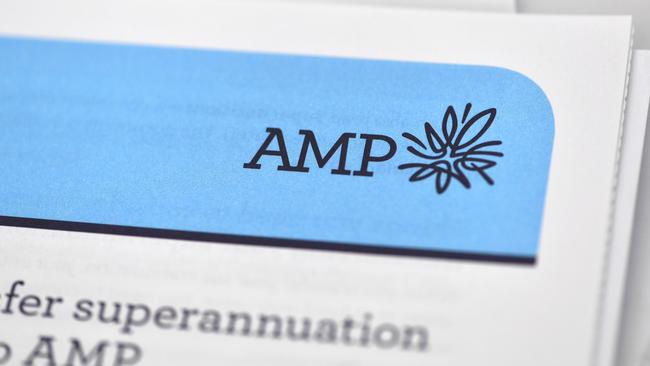Barefoot Investor: Don’t feed the super fund fat cats
LAST week, investment group Stockspot came out with its annual Fat Cat Awards, which ranks the worst-performing super funds and this is one award you do NOT want to win. So it’s time to take a closer look, writes the Barefoot Investor.
I ONCE knew a very rich guy in his 60s who prided himself on “calling a spade a spade”.
“You’re fat!” he once said to a bloke we’d just been introduced to.
“Hey!” I said, coming to the poor guy’s defence (while simultaneously sucking in my gut).
“What? It’s the truth! Look at him! He’s a prime candidate for a heart attack!” he said (while the guy seemed to be having heart palpitations).
“You need to look after yourself. I’m telling you this for your own good,” he said condescendingly to the stranger.
True story.
LOST SUPERANNUATION HURTING RETIREES
COMPULSORY SUPER IS AUSTRALIA’S BIGGEST RORT
(And also true that, ironically, he was himself built a bit like Shane Warne, ‒ circa 1993.)
Anyway, my wife says that sometimes I behave like him when she wheels me out in social settings — the only difference is that I’m brutal about people’s financial flab.
Case in point: a while back at a barbecue, a guy I didn’t know struck up a conversation with me (the token finance guy) by saying he had his super with what I knew to be a high-fee fund. He wasn’t asking for advice, just making polite conversation on a Sunday afternoon.
“What on earth made you go with them?” I asked, head cocked, eyebrow raised.
But before he could burble out an answer, I said: “I mean, it’s just a stinker of a fund.”
As I type, I’m literally cringing at reliving this moment. My wife’s right: no one wants to talk about personal stuff with strangers in a social setting. But, hey, it’s just you and me sitting here, and we’re old mates … so let’s say we poke a bit of fun at a few flabby funds.
Last week, investment group Stockspot came out with its annual Fat Cat Awards, which ranks the worst-performing super funds.

STOCKSPOT FATTEST FUNDS 2018
Each year the finance sector gives out thousands of awards to itself, but this is one award you do NOT want to win.
Here are the Garfields of the game — who’ve been effectively stuck in the catflap for the past five years licking the cream off your returns:
1. OnePath Masterfund: ‒ OnePath Tax Effective Income Trust
2. OnePath Masterfund: ‒ OptiMix Moderate Trust
3. OnePath Masterfund: ‒ OptiMix High Growth Trust
4. OnePath Masterfund: ‒ OnePath Balanced Trust
5. Perpetual WealthFocus Superannuation Fund: ‒ Perpetual Diversified Growth
6. AMP Superannuation Savings Trust: BlackRock Global Allocation
7. Queensland independent Education & Care Superannuation Trust: ‒ Conservative Growth
8. Labour Union Co-Operative Retirement Fund: ‒ Targeted Return
9. AMP Superannuation Savings Trust: Future Directions Moderately Conservative
10. StatePlus Retirement Fund: Balanced
What do all these crazy cats have in common?
They all charge high fees, presumably to pay for all their expert fund managers.
(Oh, and the “top four” are all brothers from another mother.)
Now, if you’re a Barefooter you’ll know I’m a skinny cat who likes index funds (i.e. low-cost funds that mechanically track the stock market, rather than being actively managed).
Guess what Stockspot found?
“Over the past five years we found only 4 per cent of balanced funds beat an index fund. And across all investment categories only 13 per cent of funds beat the indexed option”, adding that this is a global phenomenon in which “actively managed funds have been unable to match low-cost indexed options”.
Faced with this research, they came to a beautifully simple conclusion.
They say there are only two things to consider when choosing a super fund: first, find the right type of fund based on your capacity to take risk. (Which Barefoot decodes as “anyone under 40 should go for growth, anyone over 40 should find a bit more balance”.)
Second, choose the fund with the lowest fees. (Which is the exactly the recipe I follow in my book.) So, if you’ve read this far and are thinking to yourself “maybe I’m getting licked”, by all means get in touch with your fund and call a spade a spade.
Tread Your Own Path!

Q&As
RIPPED-OFF, INDIRECTLY
LISA ASKS: I am 27 and earn $95,000 a year, so my super is adding up. But I received my annual superannuation statement and found I am being charged three separate fees: administration fees (0.37 per cent), investment fees (0.25 per cent) and something called “indirect costs” (0.64 per cent).
In your book you recommend paying no more than 0.85 per cent in fees on super: does that refer to any type of fee charged, or only administration and investment fees? And do you have any idea what indirect costs are?
BAREFOOT REPLIES: Good on you for being one of the few people who bothers to look at this stuff.
ASIC defines “indirect costs” as costs “paid by your super fund to external providers that affects the value of your investment. Typically these are costs paid to investment managers”.
Bottom line? It’s another fee. All up, you are being slugged 1.26 per cent of your balance each year.
If you’ve now got $40,000 in super, that’s about $500 a year. That doesn’t sound like much.
Yet, as a back-of-the-envelope calculation (6 per cent real return, not factoring in tax), your super will grow to about $720,000 over the next four decades. However, the negative effect of the compounding fees will be roughly $220,000!
You’ve done the hard work by wading through the complicated, boring guff.
Now comes the most profitable call you’ll ever make: call your fund and ask them if they have a high-growth, low-cost index super offering ‒ preferably one that charges less than 0.85 per cent in fees, total.

AM I GOING SOUTH?
CLIFF ASKS: On advice from our financial adviser, my wife and I moved our super from Australian Super to AMP MyNorth Super a year ago.
We have generally been happy with the advice we have received and, like all funds, in the past year MyNorth has had its ups and down.
However, with the findings of the banking royal commission and recent stock market volatilities affecting AMP, we think we should maybe go back to the industry fund. Is it likely AMP could go under in future, meaning we could lose all our super?
BAREFOOT REPLIES: I’ve had several people ask me the same question — whether their money is safe with AMP. Let me be clear: your money is safe.
That’s because the money you have in super is held via a legal trust for you.
Super is strictly regulated, and the trustees have a legal duty to manage the fund for the benefit of members.
However, the same can’t be said for the suffering AMP shareholders.
The very fact that so many of its customers are questioning whether this 170-year-old blue-blooded company will survive is an indication of just how much the brand has been battered.
As Dr Phil says, it’s hard to win back trust.
Speaking of which, I’d ask your adviser to do a financial comparison between your old industry fund and your MyNorth fund since you switched.
to keep the house or sell and make a clean break … your ex-

EAT, PRAY ...
JAMES ASKS: So I get a message from my wife at 2am while she is in Morocco (finding herself): “I think I’m going to move to Morocco, I’m so sorry.”
This really was not expected, nor in my plan for the future. Now I am having to deal with all the financial responsibilities on my own, without a second income.
I have a half-renovated house, our combined debts, and now legal fees to deal with the separation. I am 34 and earning good money ($140,000), but it feels like I have caught an STI from an overseas holiday that I didn’t even take!
BAREFOOT REPLIES: It sounds like your ex-wife took the “Eat, Pray, Dump” tour!
Seriously, I can’t imagine what it was like to get that text — you must be going through hell.
And while it probably feels like you’re the one here in Australia cleaning up the financial mess, you are both responsible for seeing this out.
So a couple of practical things: if you haven’t already shut down any joint bank accounts, credit cards or redraw facilities, do so immediately. Also, keep good notes on your finances, and engage a family solicitor.
You don’t mention kids and, given your age, it sounds like it may have been a short marriage. This will be taken into account, and should make things much simpler in coming to a final property settlement.
Obviously you are facing a financial setback, but at your age, and with your income, it’s something you will overcome.
So think hard about whether you want to keep the house or sell and make a clean break — your ex-wife certainly has.
If you’ve got a burning money question, visit barefootinvestor.com and #askbarefoot
The Barefoot Investor for Families: The Only Kids’ Money Guide You’ll Ever Need (HarperCollins) RRP $29.99. Available now in all good bookstores and online
The Barefoot Investor holds an Australian Financial Services Licence (302081). This is general advice only. It should not replace individual, independent, personal financial advice
Originally published as Barefoot Investor: Don’t feed the super fund fat cats


